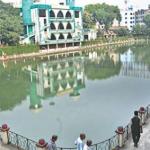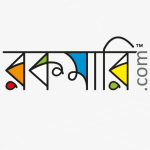International Mother Language Day is an annual observance celebrated on 21 February worldwide. The day aims to promote awareness of linguistic and cultural diversity and to promote multilingualism. The United Nations Educational, Scientific, and Cultural Organization (UNESCO) declared 21 February as International Mother Language Day in 1999 to honor the Language Movement done by the Bangladeshis (then the East Pakistanis), and has been observed worldwide since 21 February 2000.
Table of contents [Show]
Importance of Mother Language
Our mother language is a critical part of our identity and culture. It is the language we first learned and the one that shapes our worldview. It connects us to our roots and helps us understand where we come from. Our mother language also plays a vital role in our communication and self-expression. It is the primary tool we use to interact with the world around us and to convey our thoughts, emotions, and ideas.
History of LanguageDay
The Language Movement in Bangladesh began in 1948 when the Pakistani government imposed Urdu as the only official language of East Pakistan. This decision was met with resistance from the Bengali-speaking people of East Pakistan who saw it as an attack on their language and culture. The movement culminated in a massive protest on 21 February 1952, where several students were killed by police while demonstrating their right to speak Bengali. This event became a turning point in the struggle for Bengali language rights and eventually led to the recognition of Bengali as an official language of Pakistan.
Celebrations and Activities
International Mother Language Day is celebrated in different ways around the world. Many countries hold events and activities to commemorate the day, such as cultural performances, language exhibitions, and academic conferences. In Bangladesh, the day is a public holiday, and people participate in parades and rallies to pay homage to the Language Movement martyrs. The day is also celebrated in other parts of the world with language-related events and activities, such as poetry readings, storytelling, and language-learning workshops.
The Role of Language in Society
Language plays a crucial role in society, affecting different aspects of our lives, including education, business, and politics. It is the primary means of communication and self-expression, allowing us to connect with others and express our thoughts and emotions. Language also shapes our perceptions of the world and influences our cultural beliefs and practices. In the business world, language proficiency is essential in today's globalized economy, enabling us to communicate effectively with people from different cultures and backgrounds.
Language Preservation
Despite the importance of language, many languages around the world are endangered due to the dominance of larger, more widely spoken languages. Language preservation is crucial in maintaining linguistic and cultural diversity, as every language represents a unique way of looking at the world. Efforts are being made to promote endangered languages, such as language revitalization programs, language documentation projects, and language learning initiatives.
Observances of International Mother Language Day
International Mother Language Day is observed annually on February 21st. This day is recognized by the United Nations and celebrated worldwide to promote awareness of linguistic and cultural diversity, as well as to encourage the use of mother languages. The day is also an opportunity to pay tribute to language martyrs who have sacrificed their lives for the recognition of their mother tongue.
In Bangladesh, International Mother Language Day is a national holiday and a significant event. It is a day to commemorate the Language Movement martyrs who fought for the recognition of Bengali as a national language. In Dhaka, the capital city of Bangladesh, people visit the Central Shaheed Minar, a monument built to honor the Language Movement martyrs, and lay flowers to pay their respects. The day is also marked by cultural programs, rallies, and processions.
In other parts of the world, International Mother Language Day is celebrated through language-related events, exhibitions, and seminars. UNESCO promotes this day as an opportunity to celebrate the diversity of languages and cultures and to raise awareness of the importance of language in preserving cultural heritage.
Schools, universities, and educational institutions around the world also organize events to celebrate International Mother Language Day. Students and teachers participate in language-related activities such as poetry recitation, storytelling, and language learning sessions. The day provides an excellent opportunity for students to learn about the importance of their mother language and other languages spoken in their country.
Overall, International Mother Language Day is an important observance that promotes linguistic and cultural diversity and encourages the use of mother languages. It is a day to celebrate our heritage and recognize the importance of language in preserving cultural identity.
Timeline of International Mother Language Day
Here is a timeline of the key events in the history of International Mother Language Day:
1948 - Pakistan is established after the partition of India, with East Pakistan and West Pakistan as two separate territories. The official language of Pakistan is Urdu, which is spoken in West Pakistan. However, Bengali is the primary language of East Pakistan.
February 21, 1952 - In Dhaka, the capital of East Pakistan, students gather to demand the recognition of Bengali as the official language of Pakistan. Police fire on the protesters, killing several people.
1956 - The Pakistani government recognizes Bengali as the national language of Pakistan along with Urdu.
1971 - East Pakistan declares independence from Pakistan and becomes Bangladesh.
November 17, 1999 - The United Nations Educational, Scientific and Cultural Organization (UNESCO) declares February 21st as International Mother Language Day to promote linguistic and cultural diversity and multilingualism.
February 21, 2000 - The first International Mother Language Day is observed worldwide.
2021 - The theme of International Mother Language Day is "Fostering multilingualism for inclusion in education and society," which focuses on the importance of multilingual education in promoting inclusion and social cohesion.
Overall, the history of International Mother Language Day is closely tied to the history of the Language Movement in Bangladesh, which sought to establish the recognition of Bengali as a national language. The observance of this day serves as a reminder of the sacrifices made by language martyrs and the importance of preserving and promoting mother languages around the world.
Point of View as Ekushey February
Ekushey February, also known as Language Movement Day or Shaheed Dibas (Martyrs' Day), is a significant day in the history of Bangladesh. It is observed annually on February 21st to commemorate the sacrifices made by language martyrs in the Language Movement of 1952.
On this day, people from all walks of life gather at the Shaheed Minar (Martyrs' Monument) in Dhaka, Bangladesh, to pay homage to the language martyrs who fought for the recognition of Bengali as the national language of Pakistan. The monument was erected in 1952 to honor the memory of the martyrs who were killed in a peaceful demonstration demanding the recognition of Bengali as one of the official languages of Pakistan.
The Language Movement of 1952 was a turning point in the history of Bangladesh, as it marked the beginning of the struggle for autonomy and independence from Pakistan. The movement gained momentum after the Pakistani government declared Urdu as the sole official language of Pakistan in 1948, despite the fact that Bengali was the primary language spoken by the majority of the population in East Pakistan (present-day Bangladesh).

On February 21, 1952, students and activists organized a peaceful procession to protest the government's decision to impose Urdu as the only official language. However, the police opened fire on the protesters, killing several people. The incident sparked widespread protests and unrest and eventually led to the recognition of Bengali as a national language of Pakistan in 1956.
Ekushey February is not only observed in Bangladesh but also by Bengali-speaking communities around the world. On this day, people pay tribute to the language martyrs and reaffirm their commitment to the preservation and promotion of the Bengali language and culture.
In 1999, UNESCO declared February 21st as International Mother Language Day to promote linguistic and cultural diversity and multilingualism. The observance of this day serves as a reminder of the sacrifices made by language martyrs and the importance of preserving and promoting mother languages around the world.
Conclusion
International Mother Language Day is an essential observance that highlights the significance of linguistic and cultural diversity. It promotes multilingualism and language rights and celebrates the rich variety of languages spoken around the world. As we celebrate International Mother Language Day, let us appreciate the importance of our mother language, preserve and promote endangered languages, and recognize the role of language in shaping our worldviews and connecting us to our roots.
References
UNESCO. International Mother Language Day. Retrieved from https://en.unesco.org/commemorations/motherlanguageday.
The Daily Star. International Mother Language Day: Why and how it is observed. Retrieved from https://www.thedailystar.net/city/news/international-mother-language-day-why-and-how-it-observed-2046847.
BBC News. Bangladesh remembers language martyrs. Retrieved from https://www.bbc.com/news/world-asia-35611045.
United Nations. International Mother Language Day 2021: Message from Ms. Audrey Azoulay, Director-General of UNESCO. Retrieved from https://www.un.org/en/observances/mother-language-day/messages.
The Financial Express. International Mother Language Day: A tribute to Bangladesh's Language Movement. Retrieved from https://thefinancialexpress.com.bd/views/views/international-mother-language-day-a-tribute-to-bangladeshs-language-movement-1613887176.








